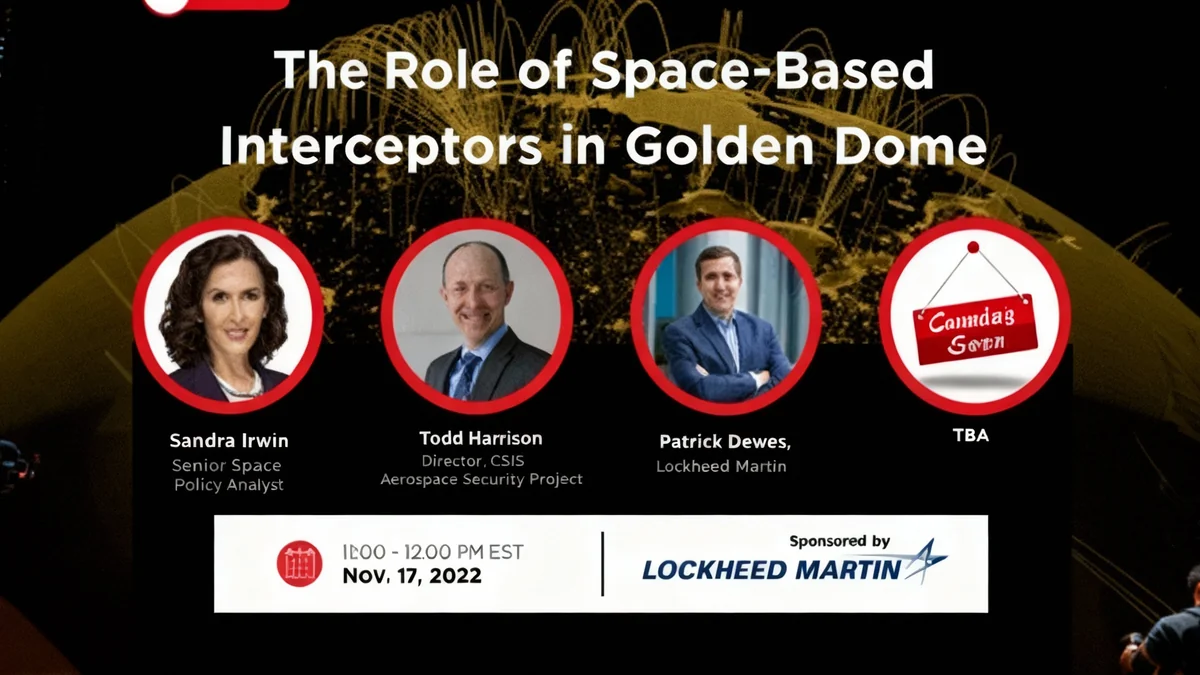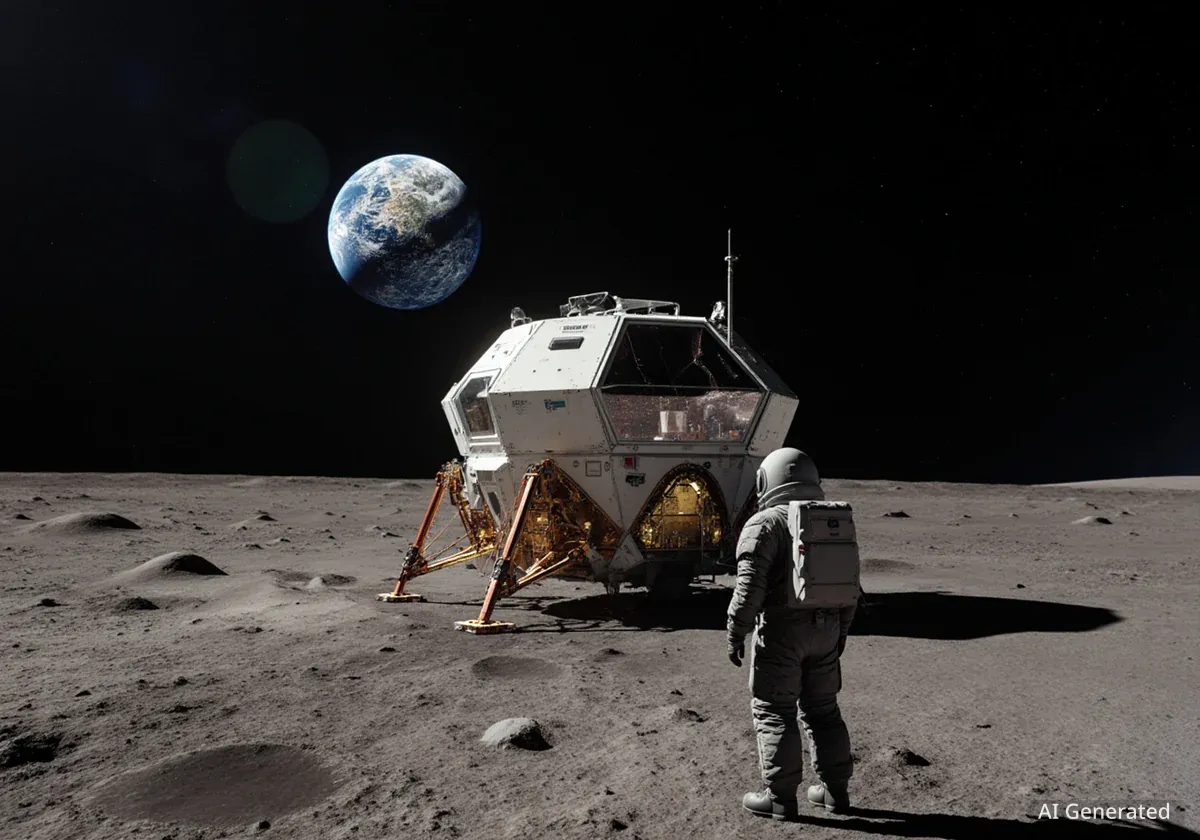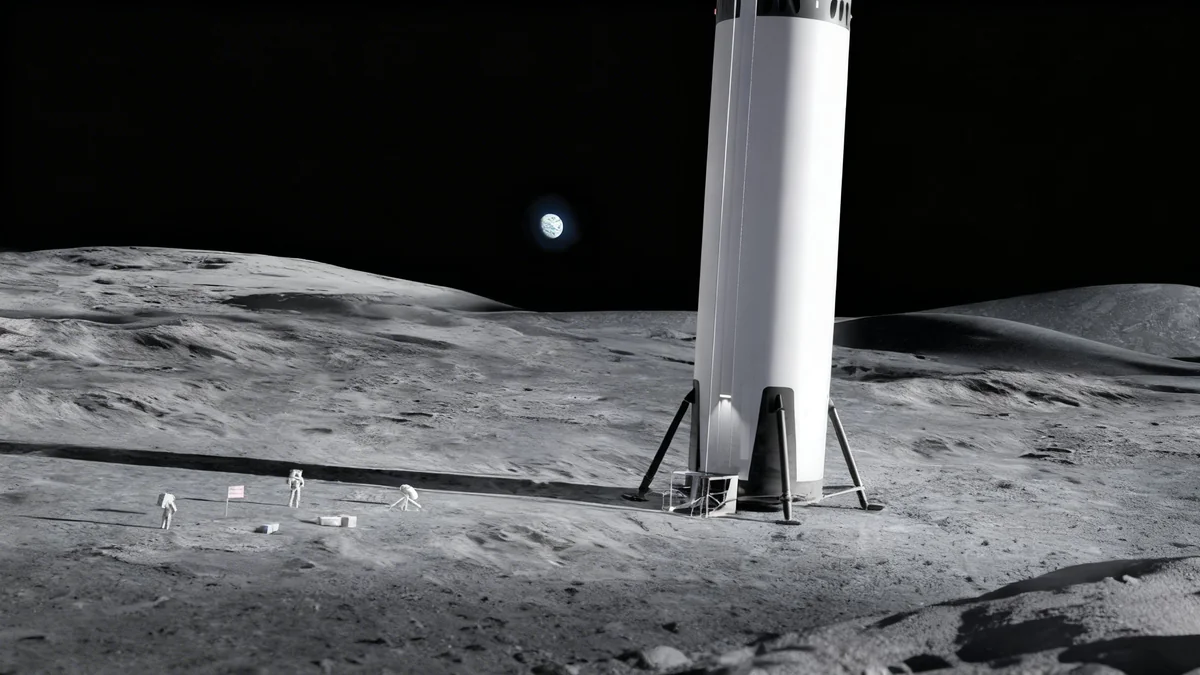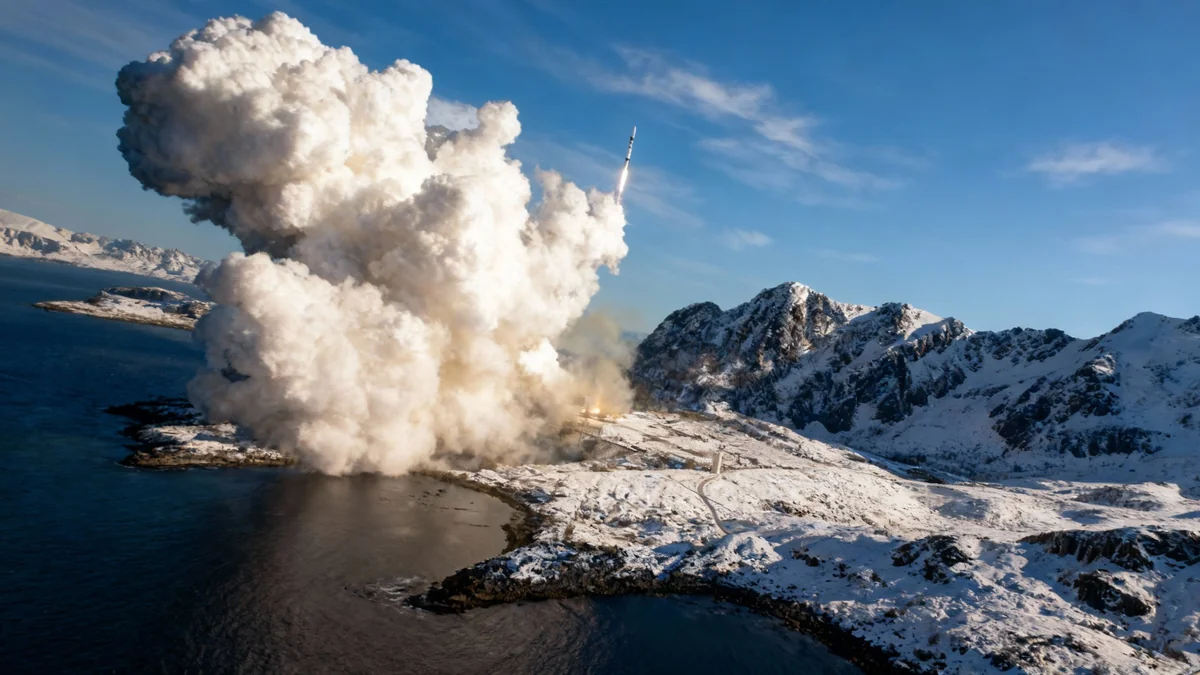Johns Hopkins University and the industry publication SpaceNews have announced a new partnership to host a public discussion series focused on the future of space exploration. The initiative, part of the Hopkins Bloomberg Center’s Discovery Series, aims to bring together leaders from government, industry, and academia to explore the rapidly evolving space sector.
The inaugural event is scheduled for November 3 at the Johns Hopkins University Bloomberg Center in Washington, D.C., and will feature a panel of executives from leading space technology companies to discuss how science fiction concepts are becoming reality.
Key Takeaways
- Johns Hopkins University and SpaceNews have partnered to create the "Discovery Series," a public forum on space exploration.
- The first event on November 3 will feature CEOs from Starlab Space, Astrobotic, and Stoke Space.
- The series will address the geopolitical, commercial, scientific, and security dimensions of the modern space industry.
- The collaboration leverages Johns Hopkins' legacy in space research and SpaceNews' expertise in industry reporting.
A New Partnership to Chart the Future of Space
A new collaboration between a major research university and a leading industry news source is set to provide a public platform for conversations about the next era of space exploration. Johns Hopkins University and SpaceNews are launching a new installment of the Hopkins Bloomberg Center’s Discovery Series, dedicated entirely to the future of space.
The series is designed to unite experts to discuss technological advancements, share new research, and engage in policy dialogue. This initiative comes as the space economy continues to expand, fueled by innovations that were once confined to science fiction.
“This installment of our Discovery Series will unite leaders from government, academia, and industry to discuss the latest technological advancements, share groundbreaking research, and engage in robust policy dialogue,” said Cybele Bjorklund, executive director of the Hopkins Bloomberg Center.
The partnership highlights a growing need for informed public discourse on a sector that is becoming increasingly complex and influential. With reusable rockets, large satellite constellations, and commercial space stations moving from concept to reality, the discussions aim to provide clarity and context.
Inaugural Event Features Industry Pioneers
The series will kick off on November 3 with a high-profile panel discussion moderated by SpaceNews senior staff writer Jeff Foust. The conversation will focus on the technologies shaping the space economy over the next decade and what might be possible in the near future.
The panelists represent companies at the forefront of the new space race:
- Marshall Smith, CEO of Starlab Space, a company developing a commercial space station.
- John Thornton, CEO of Astrobotic, a leader in lunar logistics and robotics.
- Devon Papandrew, vice president of business development at Stoke Space, a firm working on fully reusable rockets.
These leaders will explore the trajectory of space technology and how their companies are contributing to a future that includes permanent human presence in orbit and on the Moon. The event begins at 6 p.m., following an opening reception at 5 p.m. Advance registration is required for attendance.
Did You Know?
Johns Hopkins University has a long history in space exploration, from transmitting the first images from the Moon landing to leading the recent DART planetary defense mission. The university is also preparing for the Dragonfly mission to explore Saturn’s moon, Titan.
Bridging Decades of Expertise
This collaboration brings together two institutions with deep roots in the space sector. Johns Hopkins has been a key player in space research and missions for decades, contributing to scientific discovery and innovation. Its legacy includes educating U.S. Space Force Guardians and leading groundbreaking missions.
SpaceNews, established in 1989, has served as a critical source of news and analysis for the global space industry for over 35 years. Its reporting covers the civil, military, and commercial aspects of space programs worldwide.
“For more than 35 years, SpaceNews has chronicled the people and programs driving the global space industry,” stated Paige McCullough, president of SpaceNews. “Now, we’re proud to partner with Johns Hopkins to explore how today’s innovations are defining the future of space.”
This combined expertise is expected to produce a series of discussions that are both insightful for industry professionals and accessible to the general public, fostering a broader understanding of the challenges and opportunities ahead.
The Modern Space Economy
The current space industry is characterized by rapid commercialization and technological disruption. Unlike the government-led efforts of the 20th century, today's landscape is shaped by private investment, startups, and new business models. Key areas of growth include satellite communications, Earth observation, lunar transport, and in-orbit manufacturing. This economic shift is creating new challenges related to regulation, sustainability, and international competition.
A Look Ahead at the Series
The November 3 panel is just the beginning. The Discovery Series plans to offer ongoing programming that examines the multifaceted nature of the space industry. Future discussions are expected to delve into topics such as space investment, geopolitical competition, and the scientific discoveries driving exploration.
The series aims to become a preeminent public square for ideas that will shape humanity's future in space. By hosting these conversations at the Hopkins Bloomberg Center, the organizers hope to foster dialogue among policymakers, innovators, and the public in the heart of the nation's capital.
As Johns Hopkins approaches its 150-year anniversary, this partnership underscores its continuing commitment to research and discovery. For a public increasingly fascinated by the final frontier, the series offers a unique opportunity to hear directly from the people building that future.




